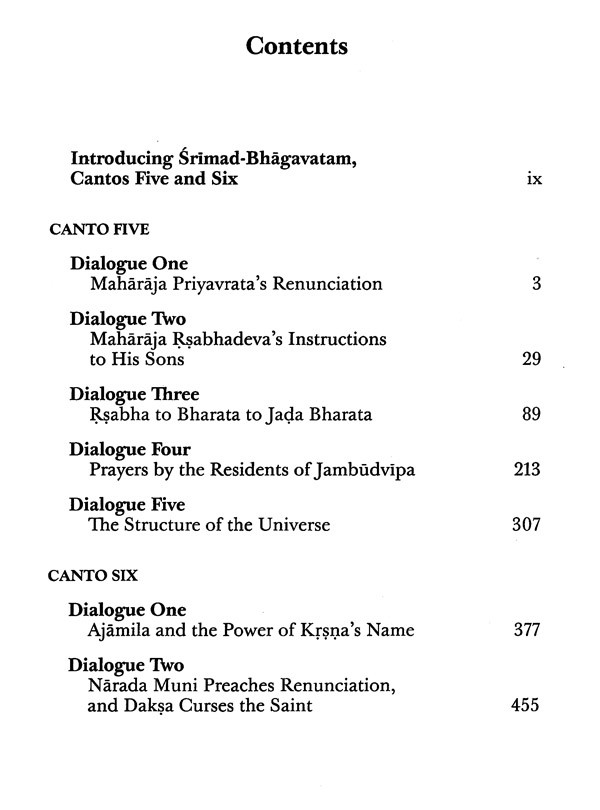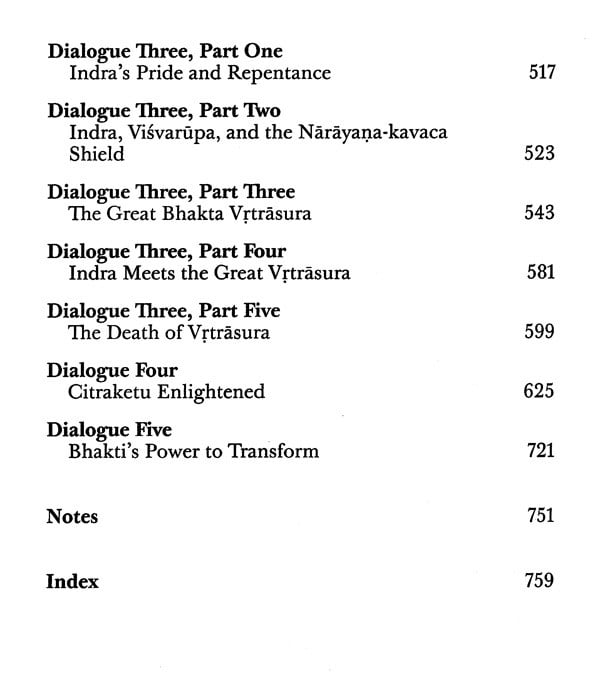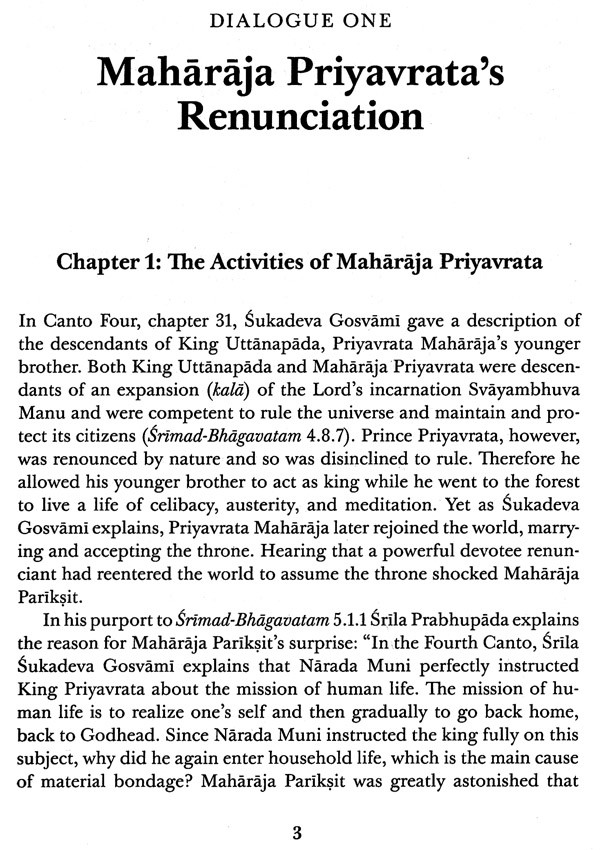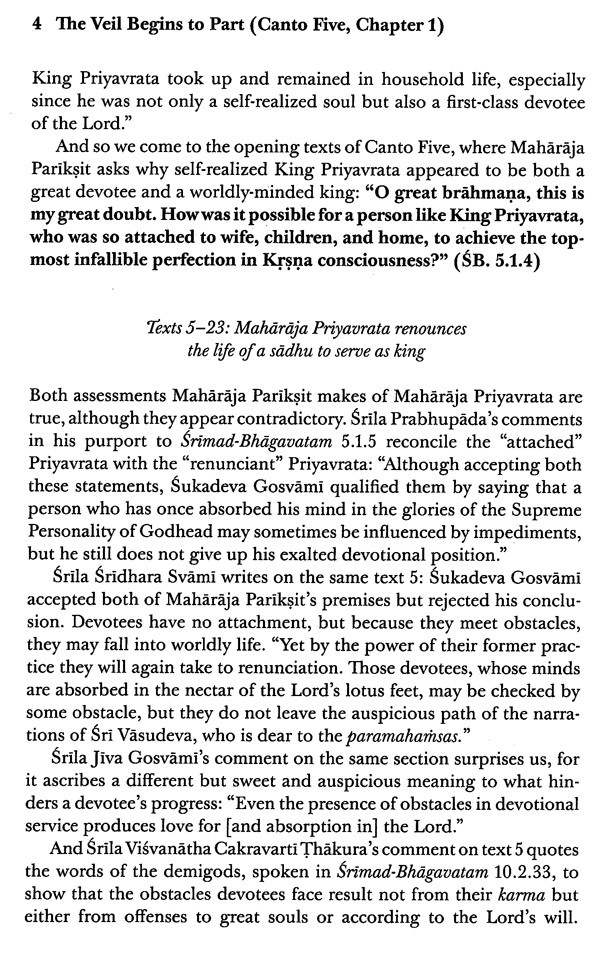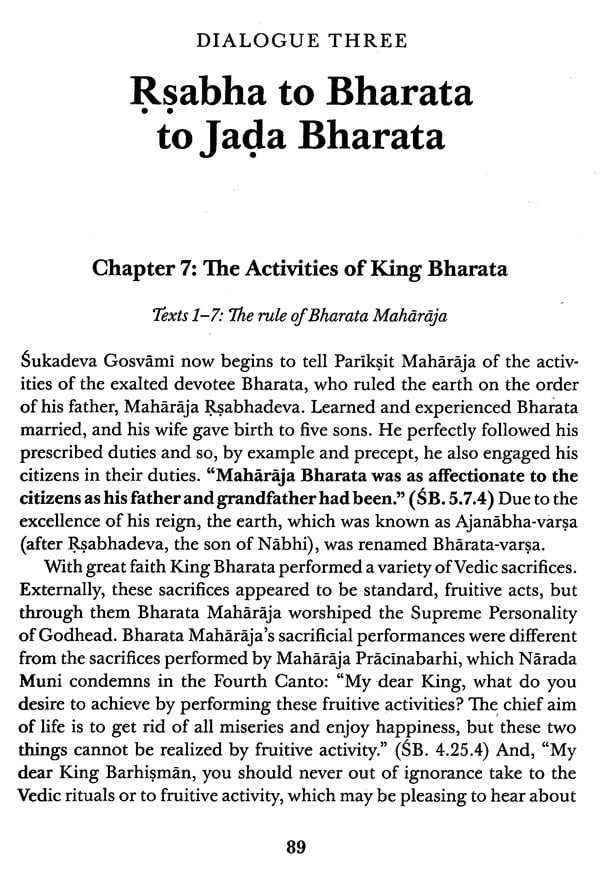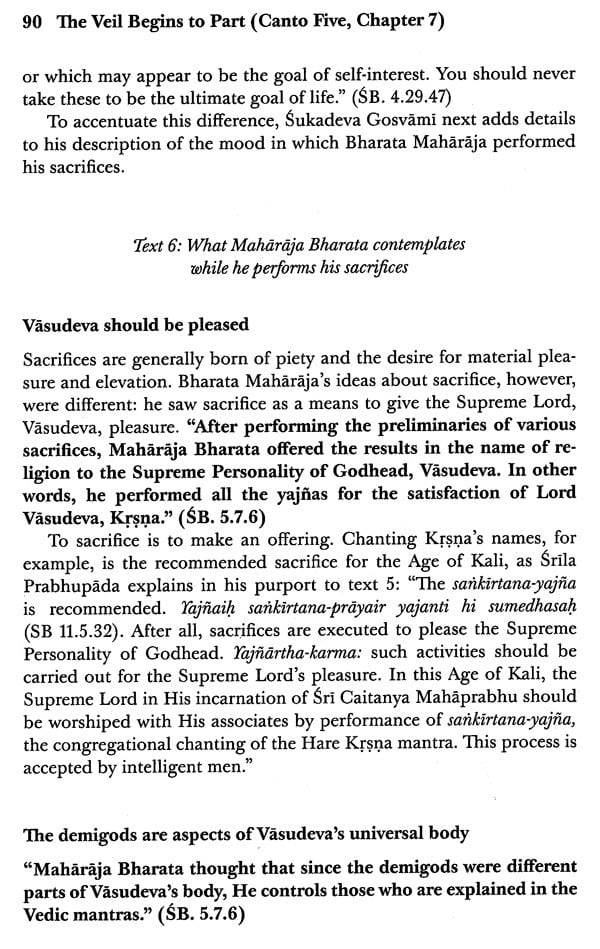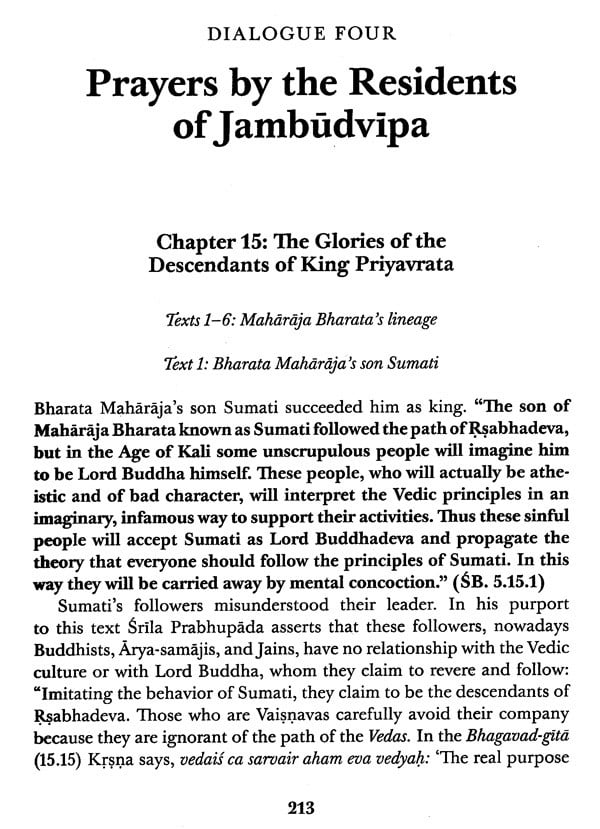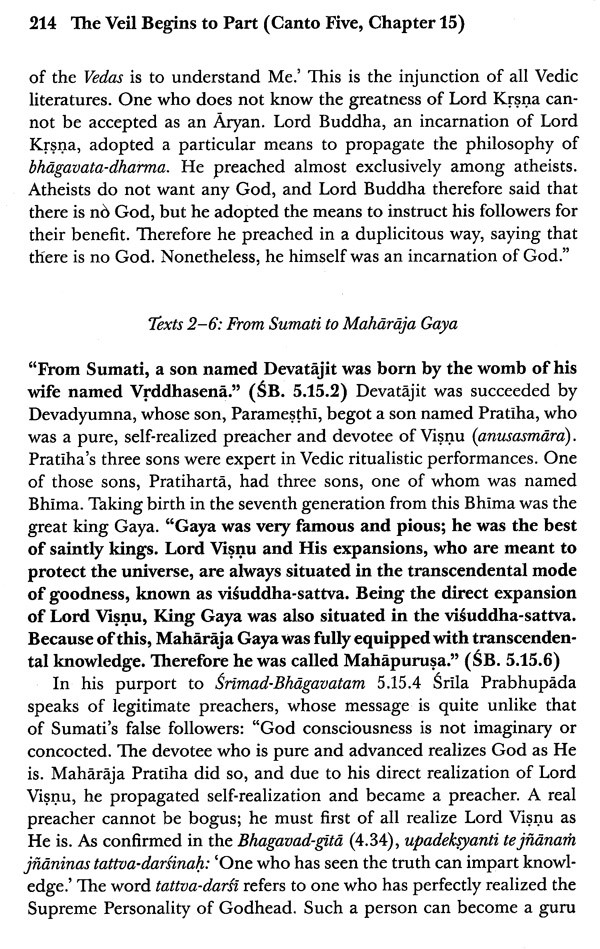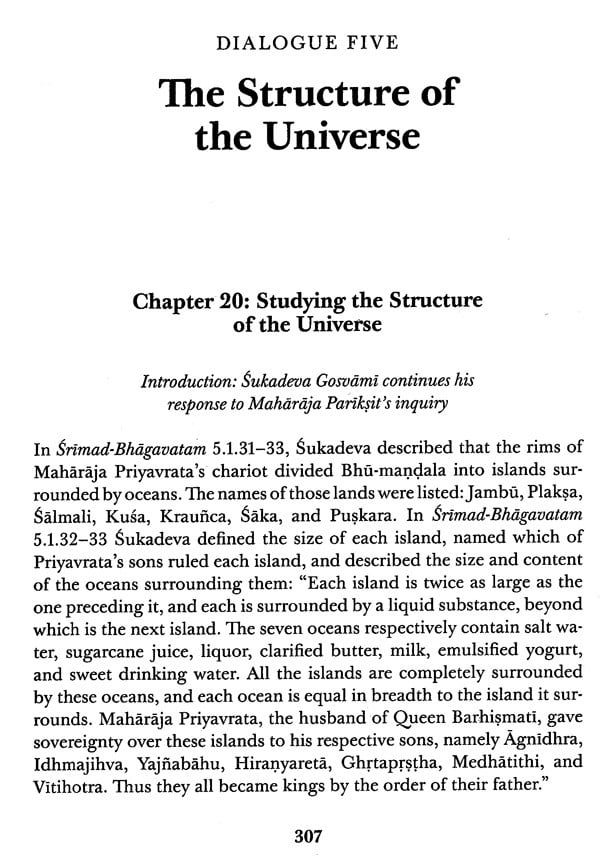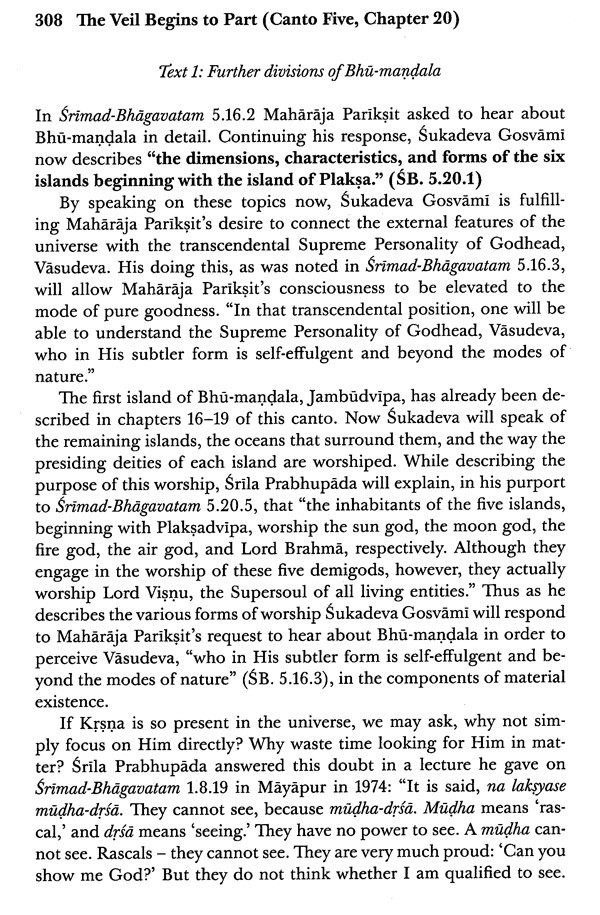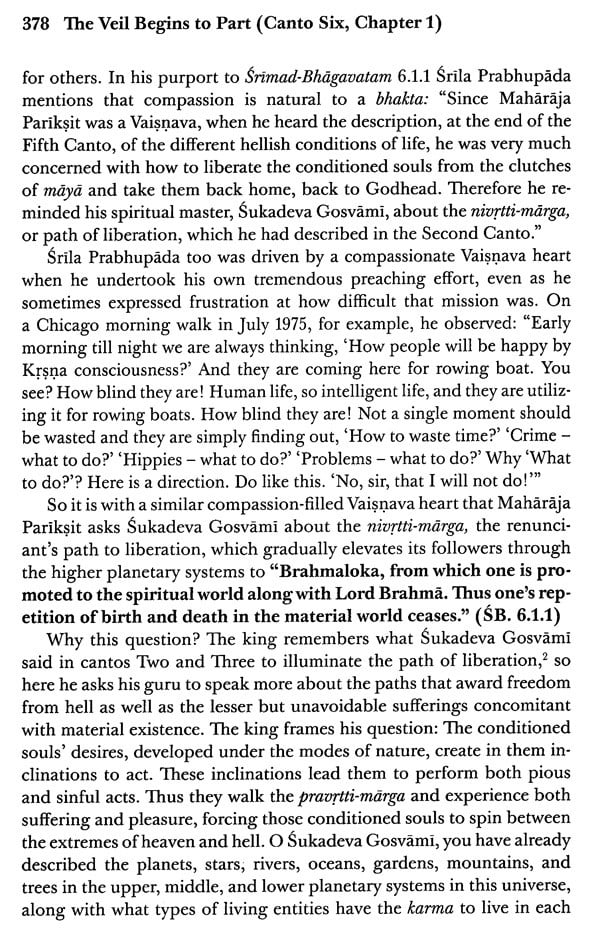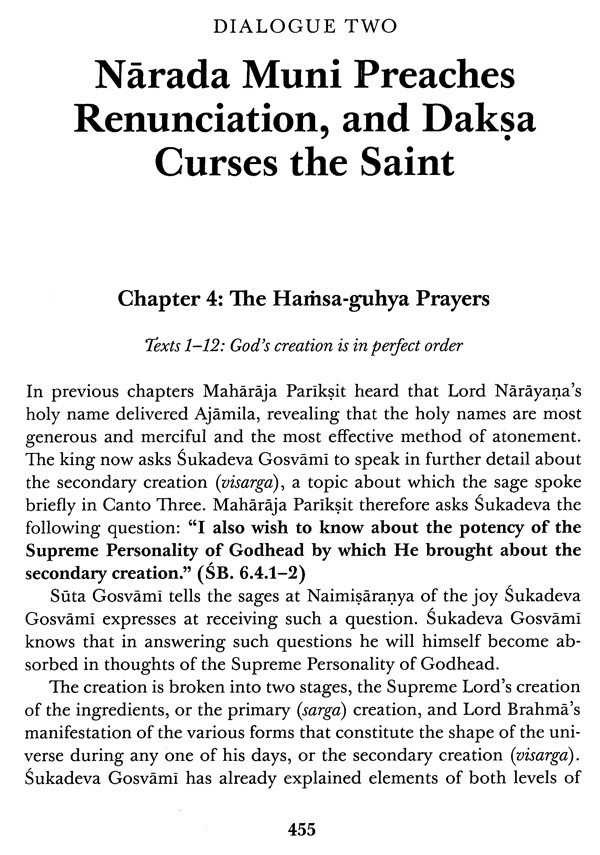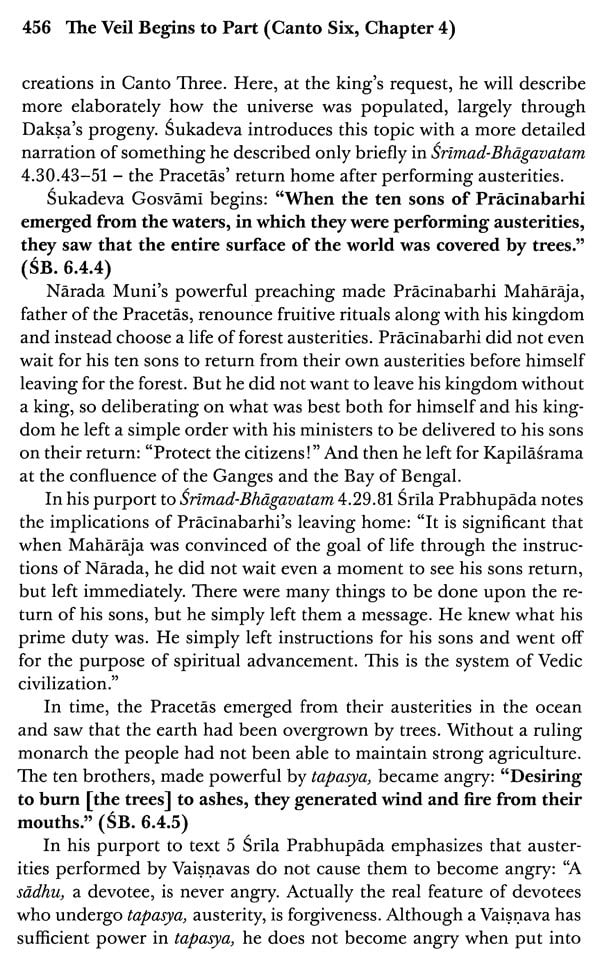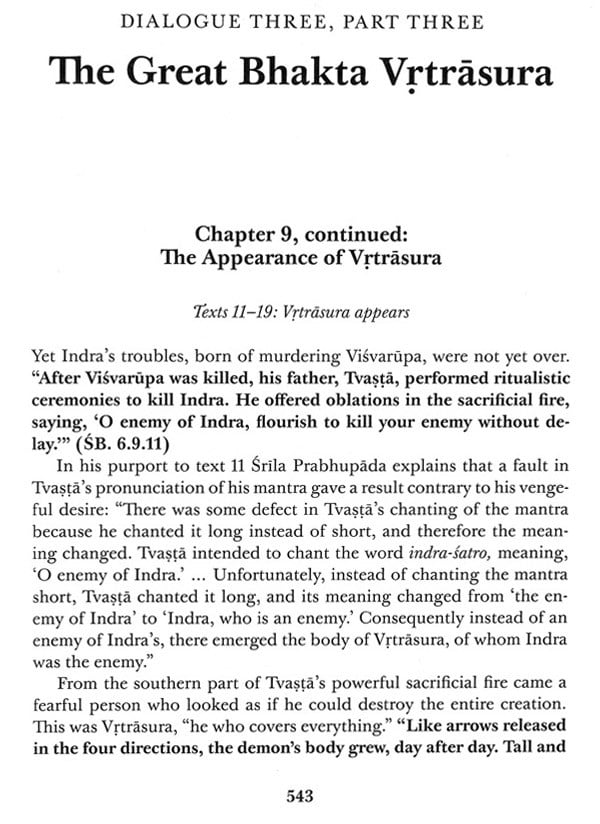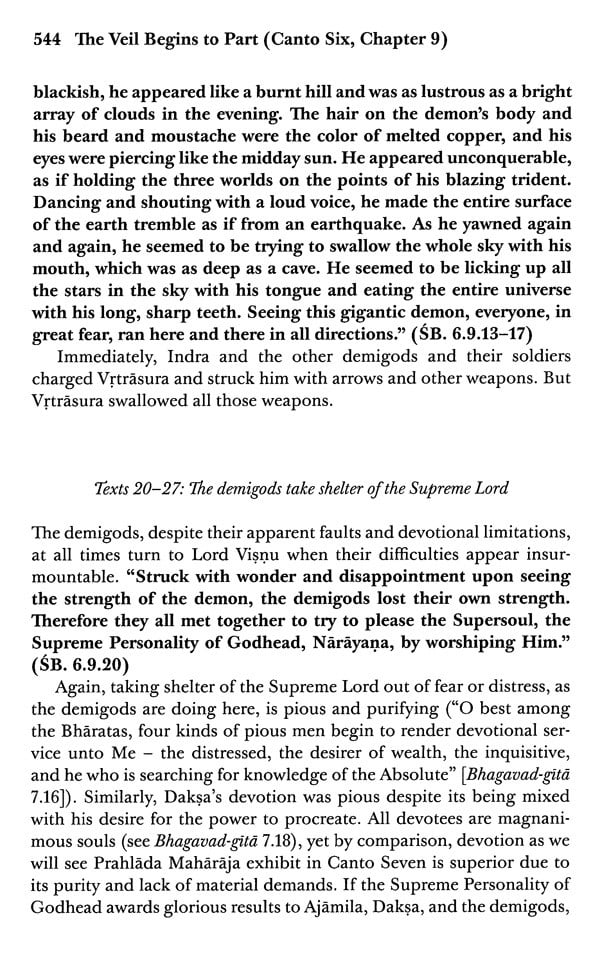
The Veil Begins To Part- A Detailed Overview Of Srimad Bhagavatam, Cantos Five And Six
Book Specification
| Item Code: | NBZ867 |
| Author: | Bhurijana Dasa |
| Publisher: | VIHE Publications |
| Language: | English |
| Edition: | 2020 |
| ISBN: | 9780992521967 |
| Pages: | 810 |
| Cover: | HARDCOVER |
| Other Details | 9.50 X 6.50 inches |
| Weight | 960 gm |
Book Description
The Veil Begins to Part" Continues the journey through Srimad Bhagavatam with a study of Fifth and Sixth Cantos. by Joining Srila Prabhupada Presentation with other Acaryas commentaries this detailed overview provides a seamless narrative, assisting readers to grasp the text as it was originally delivered by Sukadeva Goswami.
Canto Five begins by capturing the essence of the extraordinary deeds and teachings of saintly kings like Priyavrata, Rasabhadeva, and, over three lifetimes, of His son Bharata. It then shifts to explain the structure of this world, including descriptions of the residents of Jambūdvīpa and their prayers to their respective iṣṭa-devas, then the structure of the universe, and the inconceivable potencies of the Supreme Lord. Canto Six presents the Lord’s affection for His devotees and in particular, the power of serving Him, in the histories of Ajāmila, Daksa, Citraketu, Indra, Vrtrāsura, and Diti.
In a 1975 evening class at ISKCON's newly opened Melbourne Mahaprabhu Mandir, and without citing Srimad-Bhagavatam 5.23.3, Srila Prabhupada spoke about the great Syena eagles that fly through outer space and drop their eggs, which hatch as they fall with the help of atmospheric friction. He sat tall and fearless on the purple velvet vyasasana as he said this, and challenged the faithlessness in our hearts. When he called for questions, a lone hand sprouted from the crowd.
"Yes?" Prabhupada asked, granting permission to the questioner. "You mentioned in your class giant eagles that fly from planet to planet and hatch their eggs in the friction of a planet's gravity." "Yes," Prabhupada replied.
"Well, it's a little hard to believe."
Srila Prabhupada brief answer was an unflinching challenge to the challenger: "What do you know? You are still within the womb of your mother!"
With that anecdote I introduce you to this detailed overview of the Bhagavatam's Fifth and Sixth cantos, which challenge our perception of the universe, its purpose, and the unwarranted confidence we have in our perception of reality.
A quick tour of Canto Five
Canto Five begins with the history of Priyavrata Maharaja, son of Svayambhuva Manu and powerful renunciates, who ruled the earth at the request of his father and Lord Brahma. Through this narrative we learn that devotional service, not renunciation, is the supreme activity of the soul, for Priyavrata gave up renunciation in order to please Krsna.
As king, Priyavrata performed wonderful deeds, including using the wheels of his chariot to divide Bhu-mandala into seven islands.
Next, in chapter two, we hear of the materially motivated renunciation of another king, Priyavrata's son Agnidhra, who for his troubles was given the celestial beauty Purvacitti to marry. Agnidhra's son, Maharaja Nabhi, became the father of Rasabhadeva, an incarnation of the Supreme Personality of Godhead, who taught His one hundred sons, headed by Bharata, that the purpose of human life is not to chase sense pleasures, which are available even to animals, but to attain spiritual bliss, especially the bliss of performing devotional service, or bhakti-yoga.
In chapters 7-14, Srimad-Bhagavatam traces out the life of Rsabhadeva's foremost son, Bharata, as he goes from king to renunciates and then onward through two more births, one as a deer and the next as the silent, fully realized, fully detached Jada Bharata. When Jada Bharata finally speaks to Maharaja Rahugana, he expands on Rsabhadeva's sublime teachings, which he still remembers, by the Lord's grace, despite two changes of body.
The philosophical thrust in Sukadeva Gosvami's description of the universe
Then Canto Five shifts: after hearing Jada Bharata's teachings to King Rahugana, Maharaja Pariksit asks Sukadeva Gosvami to speak about the seven islands of Jambudvipa, which he'd heard had been carved from the deep impressions made by King Priyavrata's chariot wheels.
The king also asks a second question: How can we perceive the Supreme Personality of Godhead in the feature He uses to pervade the universe? He says: "When the mind is fixed on the Supreme Personality of Godhead in His external feature made of the material modes of nature - the gross universal form - it is brought to the platform of pure goodness. In that transcendental position, one can understand the Supreme Personality of Godhead, Vasudeva, who in His subtler form is self-effulgent and beyond the modes of nature. O my lord, please describe vividly how that form, which covers the entire universe, is perceived." (SB. 5.16.3)
Inspired by these two questions, Sukadeva Gosvami explains both the structure of the universe and the inconceivable potency of the Supreme Personality of Godhead by which He supports and is present throughout material existence. Sukadeva's answers to these questions continue until the end of the canto, in chapter 26.
So, in almost three hundred texts, Pariksit Maharaja hears great devotees describing the Lord's exalted qualities and the devotional service that will award him the level of consciousness to know Him. And even as Sukadeva describes his pure soul's vision of the physical universe, that great narrator of Srimad-Bhagavatam includes in his description a philosophical narrative meant to carry his hearers onward to Krsna, the Supreme Personality of Godhead, as He will appear in Canto Ten.
Yet we modern readers tend to struggle when we hear Sukadeva Gosvami's description of the universe, because the Bhagavatam confronts us with a universe quite different from the one we learned about in school.
Still, we learn in the Bhagavatam texts and Srila Prabhupada powerful purports to them that the discussion Rsabhadeva Maharaja had with His sons in the canto's fifth chapter is now actually being expanded on in Sukadeva's description of the universe: from the heavenly planets to the middle (earthly) planets to the lower planets there is no happiness worth pursuing. What is to be pursued? Throughout his descriptions, narrations, and prayers, Sukadeva Gosvami explains that in any sphere of existence one should seek shelter in devoted service to Krsna, something that produces ultimate, spiritual bliss.
The above topic, plus the Supreme Personality of Godhead's presence throughout His creation (acintya-bheda and abheda-tattva) - His simultaneous oneness and difference from everything that exists, which is the sublime philosophical doctrine of Sri Caitanya Mahaprabhu - is the philosophical message that threads its way throughout the Fifth Canto.
**Contents and Sample Pages**
